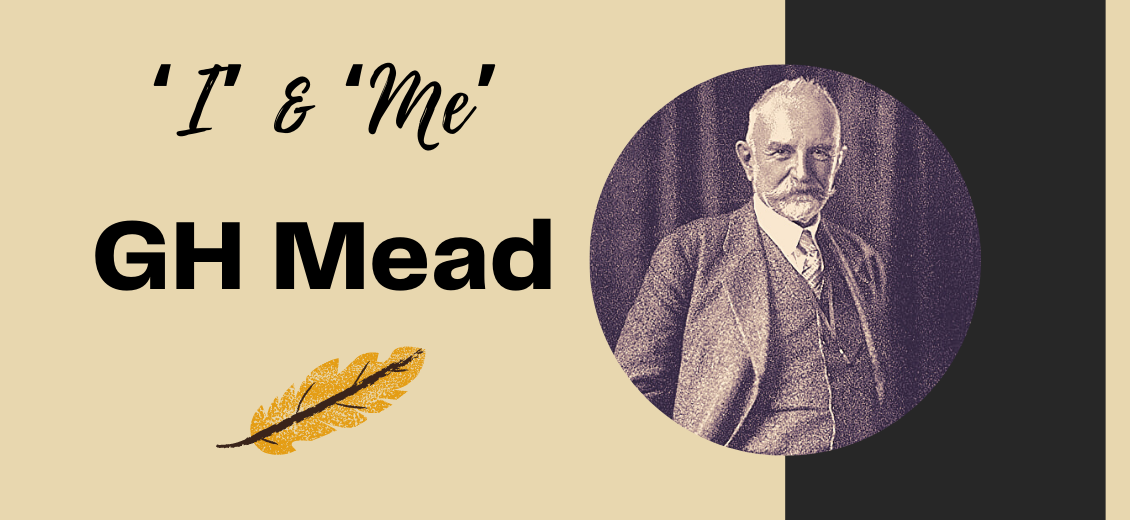GH Mead – 'I' & 'Me'
Blogs Home
- 15 Oct 2020

Long before iMacs and iPhones popularized and put the word ‘I’ in perspective, in Sociology GH Mead theorized that a person carried two instances of the self – the ‘I’ and the ‘Me’. The ‘Me’ part according to him was learned behaviour, a ‘social self’ developed by absorbing the attitudes of ‘the generalized other*’. The ‘I’ part was the response to the ‘Me’ and developed according to individual impulses. When toned down, it looks like this – ‘Me’ is what I have learnt from society or social groups and stands for all that I am expected to do; ‘I’ is who I am and all that I know for myself.
Generalized other > Me > I
This concept from Mead is important. He says that our entire thinking process is an internal dialogue between the ‘I’ and the ‘Me’. According to him, ‘I’ is the one who knows how something feels; ‘Me’ is that feeling itself. I know I am hurt when I am cheated; I (i.e., ‘Me’ or my social self) get hurt because I have learned (from society) that when cheated, one must feel hurt. Thus - ‘I’ is the self as subject; ‘Me’ is the self as object.
Now what happens is that ‘object’ comes before ‘subject’ – ‘I threw a rock’ – where the piece of rock existed before I acted upon it. And, taking this to its logical conclusion, we get that ‘existence in a community’ comes before ‘individual consciousness’. In other words, society comes before individuals. This sentence is a very good summation of this idea - ‘First one must participate in the different social positions within society and only subsequently can one use that experience to take the perspective of others and become self-conscious.’
Yes, this does feel a bit deterministic** but in all fairness, Mead was not aiming for that. Rather, he was inspecting processes through which individuals socialize and this theory is meant as a theory on the ‘social development of the self’. To end this article, let us take one more example to understand the concept of ‘I’ and ‘Me’:
I am a wicket-keeper playing a game of cricket. The ‘I’ part of my being knows how to take catches, how to field and how to stump and call (i.e., impulses). The process of identifying myself as a wicket-keeper in a game of cricket is what Mead calls the ‘Me’. Also, I am able to identify myself as a wicket-keeper only because I am able to reflect upon and picture myself in a relationship to the whole game of cricket, its players and its rules – three things that can be taken together as the ‘generalized other’.
I > Me > Generalized other
Hope this article helps you gather this concept comfortably. Do share your thoughts in the comments!
* the ‘generalized other’ is the general attitude of a community or social group
** determinism – a philosophical theory holding that all events are inevitable consequences of antecedent sufficient causes; often understood as denying the possibility of free will




